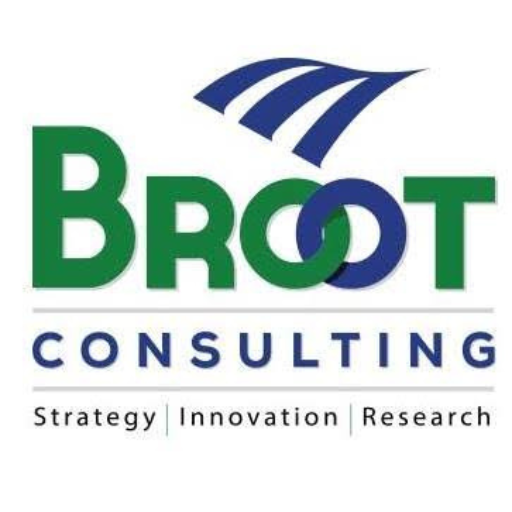Beneath the energy of Africa’s startup boom lies a sobering truth: more than half of new ventures fail within their early years. In 2020, the average startup failure rate across the continent stood at 54%, with Ethiopia and Rwanda as high as 75%, while Kenya performed better at 24%. Globally, 90% of startups fail, with most collapsing before their fifth year. These aren’t just statistics—they’re signals. Passion and capital may start a company, but without strategy, governance, and market fit, few make it to sustainability.
Over the past four years, Africa’s startup ecosystem has ridden a dramatic wave—$4.6 billion in funding in 2022, falling to $2.9 billion in 2023, and sliding further to $2.2 billion in 2024. Yet the more concerning trend isn’t the drop in capital—it’s the rise in quiet, preventable failures. Behind the headlines and valuations, too many startups are folding without ever fulfilling their promise.
♦ If African startups are to thrive, we must shift the question from
“How do we raise capital?” to “How do we build companies that endure?”
Africa’s startup scene has become obsessed with the wrong metrics. We applaud pitch decks as if they were business models, celebrate funding rounds like profitability, and borrow Silicon Valley’s “move fast and break things” mantra—without the systems, safety nets, or capital depth that make that model viable. But in Africa, moving fast without building deep doesn’t lead to disruption—it leads to collapse.
It’s time to stop mistaking speed for progress and funding for success.
Fund Raising: An Illusion of Progress?
Silicon Valley’s approach evolved in a context with abundant capital, predictable regulations, advanced infrastructure, and affluent, tech-savvy consumers. There, failure is recoverable, it is part of learning. In Africa, where markets are fragmented, infrastructure is limited, and capital is thin, using the same playbook is misleading and dangerous. Moving too fast often leads to collapse—not iteration.
Africa doesn’t need more rapid expansion. It needs foundational thinking, without which we would continue to lose capital to other destinations, after all, capital has no emotion.
The continent’s startup future depends on a new kind of leadership—one that values resilience over hype, governance over noise, and long-term traction over vanity valuation.
The Four Structural Fault Lines Undermining African Startups
-
Growth Without Margins
♦ Critical Cue: Can your business survive on revenue, or is it just running on investor hope?
Many African startups chase user numbers, not profitability. They subsidize growth with investor capital, mistaking traction for viability. But when the capital slows, so does the illusion.
If your business can’t breathe without funding, it’s not growth—it’s dependency.
- Expansion Without Foundation
Critical Cue: Scaling across countries is impressive—until it starts breaking your business.
Expanding into five markets looks good in pitch decks. But cross-border growth without operational readiness, cultural insight, or regulatory alignment breeds dysfunction.
Growth isn’t a badge—it’s a burden. And most founders carry it too soon.
- Capital Without Accountability
Critical Cue: If no one’s holding the steering wheel, capital becomes a crash course.
Most startup boards are passive, symbolic, or handpicked for loyalty over insight. Founders rarely face hard questions, and investors vanish after funding rounds.
This isn’t governance. It’s a vacuum. And in that vacuum, money disappears.
- Vision Without Execution Discipline
Critical Cue: Vision is cheap. Execution pays the bills.
Great ideas don’t fail—poor follow-through does. Startups collapse not from lack of ambition, but from lack of discipline: weak systems, unclear roles, missed milestones.
If your strategy lives only in slides and speeches, you’re not building—you’re wishing.
What African Founders and CEOs Must Do Now
- Build Businesses, Not Just Pitch Decks
A good story raises money. Investors might fund the story, but customers only pay for value. Stop chasing vanity metrics and reconnect with the core of your business: solving real problems and generating real returns.
- Master Boring Excellence
Enduring businesses are built on what many overlook—financial precision, operational discipline, and consistent customer delivery. It may not trend, but it works. Excellence is often unsexy—and that’s exactly why it matters
- Don’t Wait to Fix Governance
Governance isn’t for when you’re big—it’s for when you want to scale responsibly. Assemble a board that challenges you, not one that flatters you. Build a culture where decisions are questioned, not rubber-stamped. Transparency isn’t overhead—it’s leverage.
- Redefine What Scale Means in Africa
Scaling in Africa isn’t a numbers game—it’s a relevance game. It means building businesses that fit local realities, withstand market shocks, and deliver deep traction—not just fast reach. Scale with purpose, not pressure.
- Control the Tempo
Blitzscaling may sound heroic, but it’s often reckless. Unmanaged growth stretches teams, breaks systems, and erodes trust. Great companies grow with rhythm—not hype. Control your tempo before it controls your business.
To Investors: Stay Engaged or Stay Out
Post-funding silence from investors is not neutrality—it’s negligence. If you’re not willing to engage post-investment, you’re not building—you’re betting. Venture capital in Africa must mean venture building. That includes sitting on boards, mentoring founders, and steering governance.
Three Final Questions for Founders
- If your startup disappeared tomorrow, would your customers notice?
- Would your team believe in your vision enough to rebuild from scratch?
- Would your business model survive without another funding round?
These are the questions that matter—not headlines, not valuation spikes, not temporary traction.
Conclusion: It’s Time for a Reset
Africa doesn’t need more unicorns built on unsustainable assumptions. It needs durable, locally grounded companies that solve real problems and create lasting value. Because when an African startup fails, it’s not just capital that evaporates. It’s trust. It’s talent. It’s belief in the ecosystem.
To every founder, investor, and policymaker: please note that
Fast isn’t always forward. Therefore, Build wisely. Lead clearly. And remember—endurance beats hype every time.





